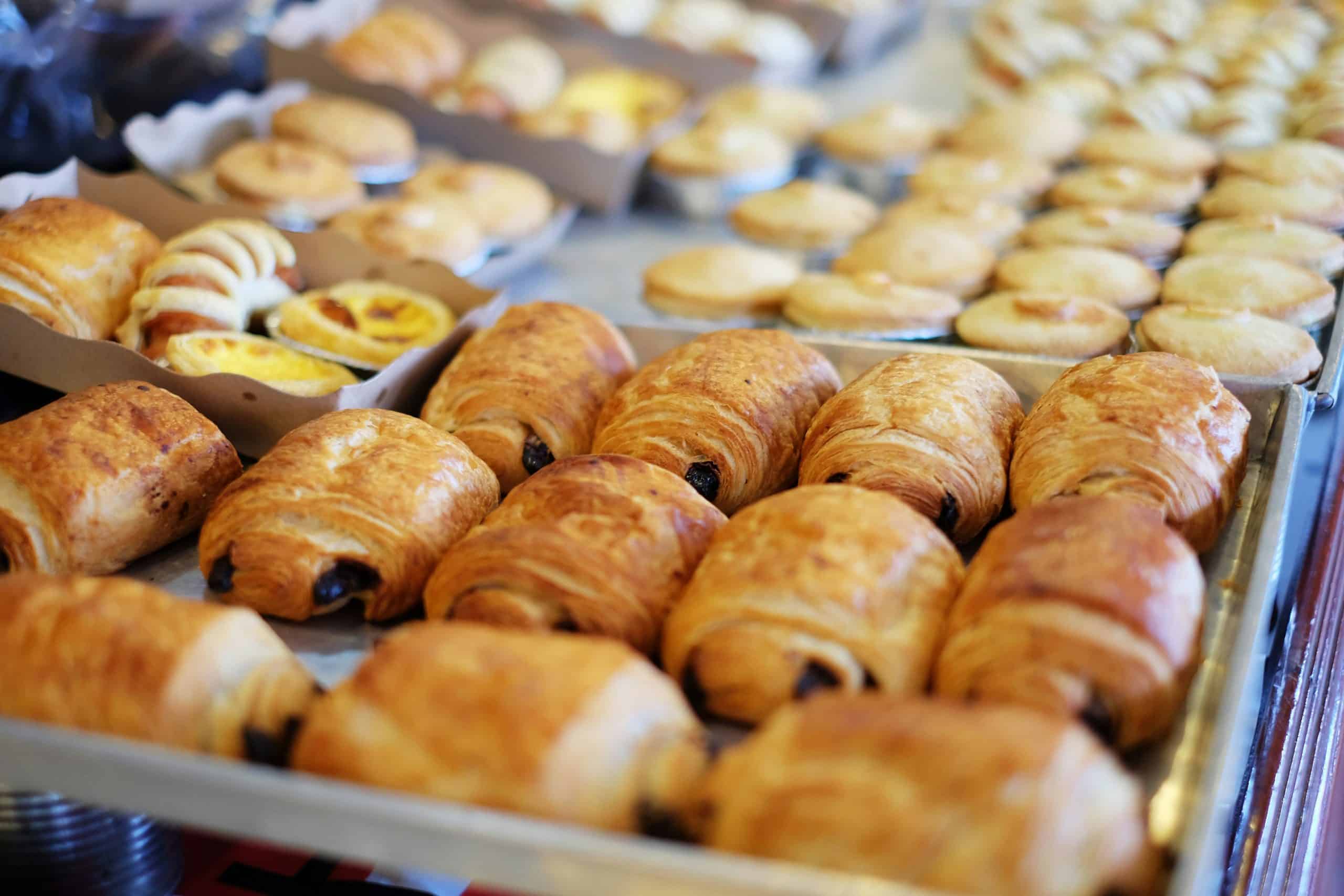Can You Bake Professional-Level Patisserie Goods in a Standard Home Kitchen?

If you’re a budding home baker with dreams of creating gourmet patisserie goods, you’ve probably asked the question: Can professional-level patisserie goods be baked in a standard home kitchen? The good news is yes, absolutely! You don’t need a professional kitchen to bake like a pro. Here’s the lowdown on how you can create drool-worthy pastries in your own humble kitchen.
The Importance of the Right Tools
The secret to professional baking isn’t necessarily in the size of the kitchen, but in the tools you use. The right tools can make the difference between a flat, uninspiring pastry and a fluffy, mouthwatering masterpiece. Here’s a guide to the essential baking tools you might want to consider investing in.
A voir aussi : What’s the Key to Perfecting the Art of Smoked Brisket in a Backyard Smoker?
A quality oven is crucial for any home baker. Convection ovens are a great choice as they evenly distribute heat, ensuring your pastry bakes uniformly. Digital scales are another must-have. Unlike measuring cups, they provide accurate measurements, ensuring consistency in your bakes. Lastly, consider getting a stand mixer. It’ll save you time and energy, freeing you up to concentrate on other aspects of your baking.
Invest in good quality pans, too. Dark-colored pans absorb and retain heat better than light-colored ones, giving your pastries a nice, golden brown crust. Silicone baking mats or parchment paper are also essential for preventing your baked goods from sticking to the pan.
Cela peut vous intéresser : How to Prepare a Gourmet Panzanella Salad with Heirloom Tomatoes and Croutons?
Getting the Basics Right
Understanding the basics of baking is just as vital as having the right tools. Baking is a science, and knowing the whys and hows can be the difference between a good and great pastry.
All pastries start with flour, sugar, and fats. Each of these ingredients plays a critical role. Flour provides structure, sugar adds sweetness and aids in browning, and fats contribute to flavor and tenderness.
An understanding of leavening agents is also critical. These agents, such as baking powder and yeast, cause your pastry to rise, making it light and fluffy.
Baking temperatures and times are other essential basics. Too high a temperature and your pastry could burn. Too low a temperature and it might not bake properly. As for timing, overbaking can dry out your pastry while underbaking can leave it raw in the middle.
Mastering Essential Techniques
Mastering certain baking techniques is key to replicating professional-level pastries at home.
One such technique is creaming, where you beat sugar and butter together until it becomes light and fluffy. This process incorporates air into the mixture, giving your pastries a tender, light texture.
Another essential technique is folding. This involves incorporating delicate ingredients such as whipped cream or beaten egg whites into a heavier mixture without deflating the air that’s been incorporated into them.
And let’s not forget about the importance of kneading when it comes to bread-making. Kneading helps to develop gluten, which is what gives bread its chewy texture.
Selecting High-Quality Ingredients
The quality of your ingredients can make or break your pastries. As a rule of thumb, always use the freshest, highest-quality ingredients you can find.
For example, when it comes to flour, opt for a high protein content for breads and a lower protein content for cakes and cookies. With eggs, always choose fresh, and use unsalted butter, so you can control the amount of salt in your recipe.
Also, consider using premium flavorings, such as pure vanilla extract, high-quality chocolate, and fresh fruits. While these may be more expensive, they’ll significantly enhance the flavor of your pastries.
Practicing and Perfecting Your Skills
Finally, it’s important to remember that baking is a craft, and like any craft, it requires practice. Don’t be disheartened if your first few attempts don’t turn out as expected.
Learning from your mistakes is an integral part of the baking process. Each failed attempt is a lesson in what not to do in the future, bringing you one step closer to perfecting your skills.
Making notes can be helpful too. Writing down what worked, what didn’t, and any modifications you made to the recipe can provide invaluable insights for future baking endeavors.
So, yes, it’s entirely possible to bake professional-level patisserie goods in a standard home kitchen. All it takes is the right tools, understanding the basics, mastering essential techniques, using high-quality ingredients, and a lot of practice. Happy baking!
Choosing the Right Recipes
The foundation of successful baking is choosing the right recipes. Professional bakers spend years perfecting their recipes, and while it’s not impossible to create your own, it’s a good idea to start with tried-and-true recipes from reputable sources.
When selecting a recipe, consider the complexity. If you’re a novice baker, opt for simpler recipes that use basic techniques and ingredients. As you gain more confidence and skill, you can gradually move on to more complex recipes that require advanced techniques and specialty ingredients.
Keep in mind, however, that even the most complex recipe can be broken down into manageable, individual steps. This is where good organization and time management come into play. For instance, some parts of a recipe can be done ahead of time, such as making pastry dough or custard filling.
When it comes to pastries, precision is vital. Professional bakers often work by weight, not volume, to ensure the accuracy of their measurements. Accuracy is key to achieving the right texture and flavor in your baked goods. So, consider investing in a digital kitchen scale and always follow the recipe to the letter.
Another important factor is the quality of your ingredients. High-quality ingredients will result in a higher-quality finished product. So, choose the best ingredients you can afford. For example, use real vanilla extract instead of imitation, and opt for fresh, organic eggs and dairy products whenever possible.
Understanding the Science of Baking
Baking is as much science as it is an art. Understanding the science behind baking can elevate your pastries from good to great. This applies even in a standard home kitchen.
Every ingredient in a pastry recipe has a specific function. For instance, flour provides structure, while fats like butter or shortening add richness and tenderness. Sugars not only sweeten the pastry but also contribute to its color and texture.
Leavening agents, like baking powder or yeast, are another crucial part of the science of baking. These ingredients cause dough or batter to rise by producing gas bubbles, resulting in a light, airy texture.
Temperature and time are also key. Different pastries require different baking temperatures and times. Too hot and the pastry could burn or dry out. Too cool, and it might not cook through.
Understanding how these ingredients and factors work together is critical. Once you grasp these principles, you’ll have a solid foundation to start experimenting and creating your own signature pastries.
In Conclusion
In conclusion, baking professional-level patisserie goods in a standard home kitchen is entirely achievable with the right approach and dedication. The key factors include having the right tools, mastering essential techniques, choosing high-quality ingredients, selecting the right recipes, understanding the science behind baking, and, most importantly, practicing your skills.
While it can seem daunting at first, remember that every great baker started somewhere. Each failure is a stepping stone to improvement. So, don’t be afraid to make mistakes and learn from them.
In the world of baking, patience is a virtue. Great pastries can’t be rushed. They require time, care, and attention to detail. But the reward – biting into a perfect, homemade pastry – is well worth the effort.
So, grab your apron, roll up your sleeves, and get baking. Your journey to baking professional-level patisserie goods in your own kitchen starts now. Happy baking!
